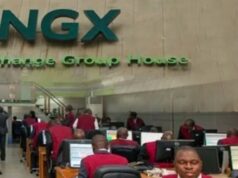SEPTEMBER 6, 2018 – Transparency International (TI), an International Non-Governmental Organisation (NGO), has said $670 million was transacted annually in cash as security vote in Nigeria.
The cash, TI said were not subjected to legislative oversight or independent audit because of its substantively secretive nature.
“Yet this veil of secrecy protects the many officials who misspent security votes, and they channel them into political activities or embezzle them outright,’’ it said.
TI stressed the need for Nigeria to have a federal legislation outlawing security votes in its governance.
The Africa Programme Manager of Defence and Security unit of TI, Ms Christina Hildrew, stated in Abuja at a two-day Stakeholders Conference in Abuja on Wednesday.
The conference was organised by Civil Society Legislative Advocacy Centre (CISLAC) in partnership with TI and support from European Union.
Hildrew also called for measures to put in place for effective oversight structures to monitor confidential security spending, including procurements.
She said that security votes were opaque corruption-prune security funding mechanisms widely used across Nigeria’s three tiers of government.
She said that the defence sector should not be unaccountable to the citizens it is meant to protect.
Hildrew, therefore, called for additional legislative oversight of the defence sector, adding that “we think it is important that parliamentary audit committees and civil societies have a say on how security spending is decided.’’
She also supported the establishment of Security Trust Fund at state level to support the phasing out of security votes.
She said that checks and balances needed to be put in the system so as to ensure accountability and transparency of what security expenditure was going to occur to ensure that it protected citizens.
The programme manager said that the UK Government, through the Criminal Finances Act enacted in August, 2017 and the Unexplained Wealth Orders which came into existence in January, 2018 would support Nigeria.
This, she said, was in terms of putting in place systems for the efficient recovery of assets from Nigeria.
She said that though there had been some successes in assets recovery, especially with the James Ibori case, there was more to be done.
Hildrew decried the slow progress the many investigations and assets recovery processes were going, adding that Nigeria could curb her many money laundering challenges by developing a unified defence sector anti-corruption strategy.
She also advised that public access to defence and security information should be extended, and protection given to whistle-blowers.
On his part, Mr Vaclav Prusa, Programme Manager, Anti-Corruption, CISLAC, said that the conference was organised to discuss issues of illicit fund outflow because Nigeria was affected by it more than the rest of Africa.
Prusa said data showed that more money went out of Nigeria than any other country in Africa, adding that as at 2015, it was estimated that about 20 billion dollars to 25 billion dollars went out of Nigeria annually.
He said Nigeria’s ranking low in TI’s perception index in spite of its effort to fight corruption, would be a thing of the past.
According to him, this is because there is a difference between reality and perception, and there is need to consider that perceptions run with certain delays.
Prusa explained that it was because of the delay by the government to sign some laws and take certain actions that the perception persisted.
“So, I won’t say that TI is not accurate but we have to consider the impact of policies with certain delays like the Proceed of Crime Act.
“I think that by next year or in six months from now, there will be much more accurate picture of the impact of this government on corruption,’’ he said.
Prusa said though this administration had recovered millions of dollars like the 321 million dollar Abacha-loot repatriated, and domestic assets being recovered by anti-corruption agencies, they were not accounted for.
He called for a framework like a database where assets and funds confiscated would be kept because citizens needed to know about them so that ordinary Nigerians could enjoy the benefit.









